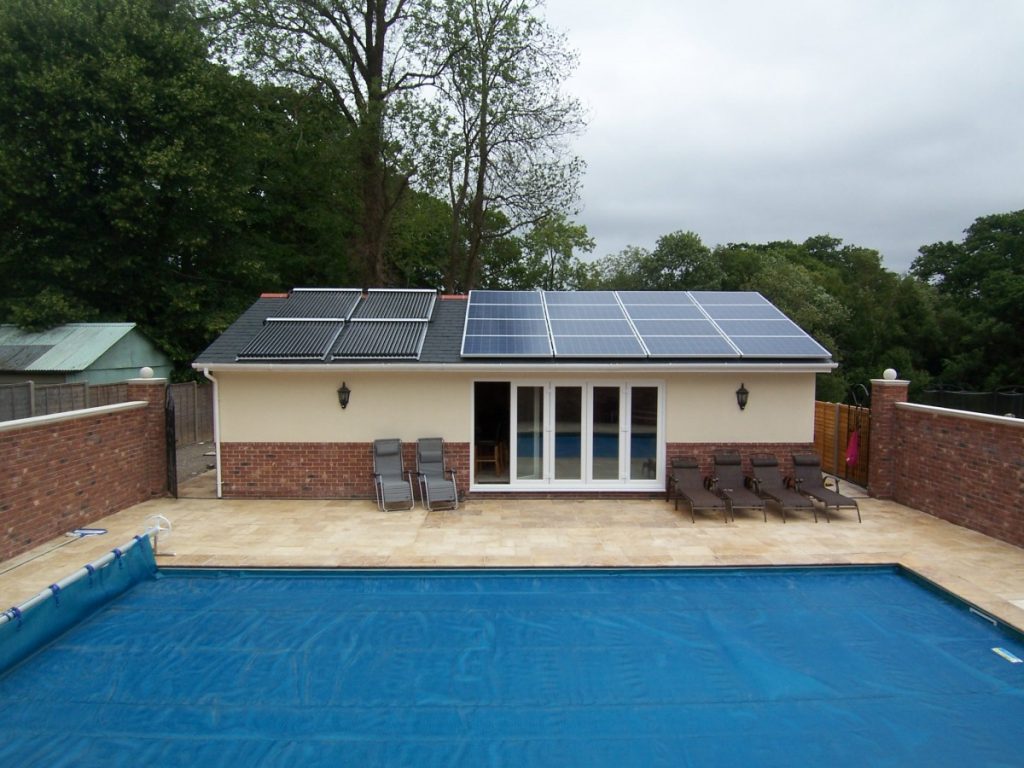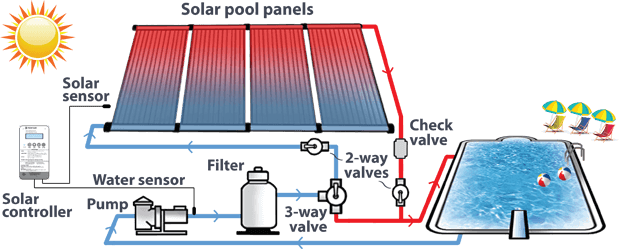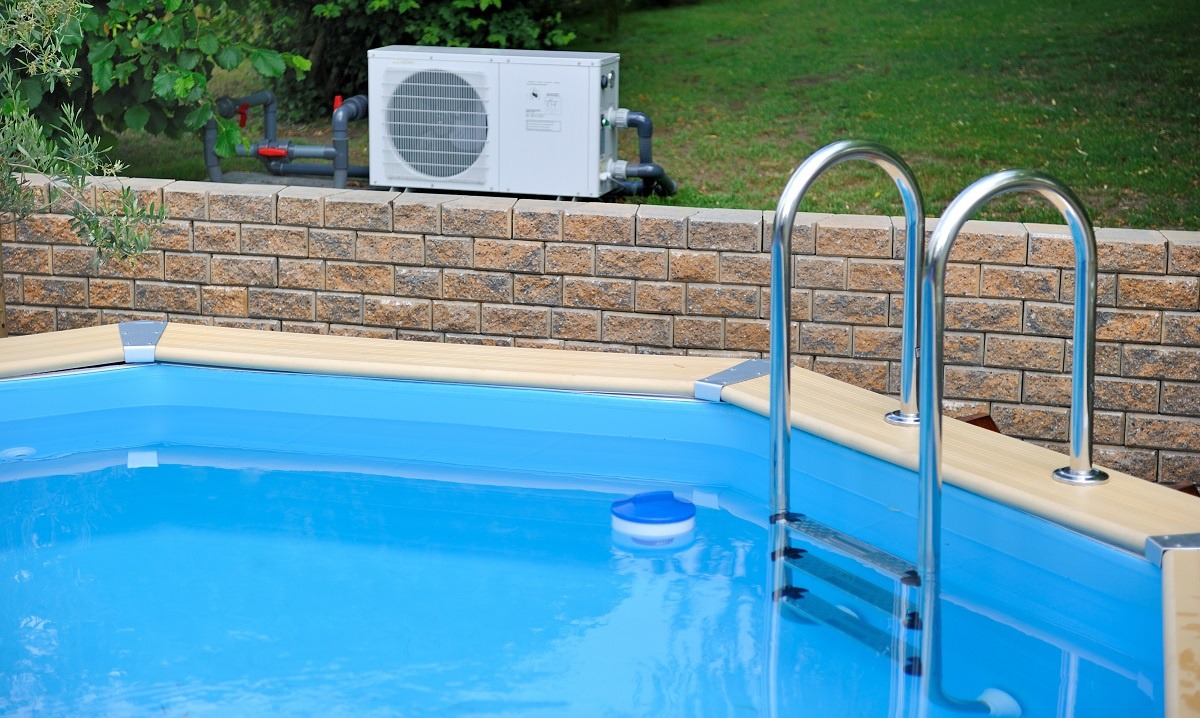Swimming Pool Heating System
- Home
- Solutions
- MEP Solutions
- Swimming Pool Heating System

Swimming Pool Heating System is important in winter, to extend swimming season time while enjoying the warm water.
Nowadays, it has become essential to have the swimming pool ready at all times. Whether to train & practice a beneficial sport, practice aqua exercises or just relax after a long day.
Which increases the importance of swimming pool heating, to be able to use it all year long.
Types of swimming pool heating system
There are 3 main types of Swimming Pool Heating System; solar heaters, gas pool heaters and heat pumps (electrical). Each type works in a different way, to suit different places.
Solar heaters:
These heaters use solar panels/collectors which transform the heat from the sun to warm up the pool water.
This kind of heater needs a sunny destination, so it can get direct exposure to sun rays for enough period of time.
Big solar panels have to be installed- usually on the rooftop, at least the size of half the pool, preferably more. To be able to generate enough heat to warm up the whole pool.
To circulate the pool water through the system, an electric pool pump that will be installed to distribute heat evenly. The system also comes with filters and control valves.
There are 2 kinds of solar pool heaters; Unglazed solar heaters and glazed solar heaters. The first one is for pools located in areas where the temperature is above the freezing point, unlike glazed heaters which suit areas with lower temperature levels that can go below freezing degrees.

Gas pool-heaters:
These heaters use either propane or natural gas as a heating source, which runs a combustion chamber with copper coils in it. The coils are heated to heat water from the pool which circulates through them and back to the pool.
This kind of heater heats the water fast, which makes it more efficient than other systems.
Unlike solar heaters, this kind doesn’t rely on the sun on anyway, which makes it more suitable for cloudy areas.
Electric heat pumps:
This heater uses electricity to help the system generate heat, by circulating water through a filter and heat pump heater.
This heater heats pool water by transferring the surrounding air heat to the water, through a process that uses a similar technology used in refrigerators but in reverse.
Swimming Pool Heating System benefits
Each system has its own benefits that make it suitable for different needs and weather conditions.
Solar heaters benefits
- Environmental friendly, as it doesn’t produce any emissions thus doesn't pollute the air.
- Low operation cost compared to other pool heating systems
- Energy and cost-efficient, as it depends mainly on solar power which is free.
- More suitable for sunny climates, where the sky is clear most of the year.
- Durable for at least 15 years.
- Low maintenance cost.
Gas pool-heaters benefits
- Affordable buying and installation cost.
- Long lifespan.
- Low maintenance cost.
- More suitable for areas where gas cost is low, making it more cost efficient.
- Warm up the pool water in a short period of time.
- Doesn’t depend on solar heat, so it’s more suitable for areas with cloudy climate.
- Heats the pool efficiently regardless of outdoor temperature.
- Suitable for any swimming pool size and design.

Electric heat pumps benefits
- Low operating costs per year
- Environment friendly and doesn’t cause as much pollution.
- Durable for at least 10 years up to 20 years.
- Depends on air temperature, making it more suitable for warmer climates.
Space consumption
Swimming Pool Heating System need a considerable space for installing solar panels, as you have to install panels at least the size of half the pool.
Other systems need a moderate system compared to solar heaters.
